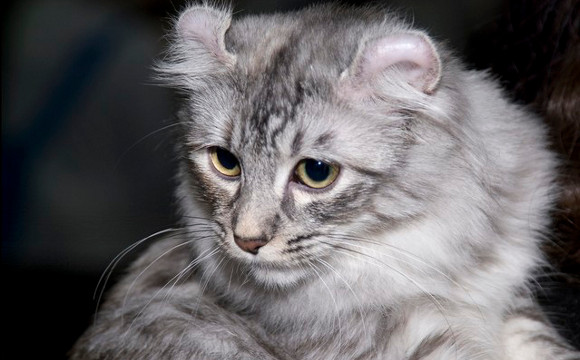History and Origin
The American Curl cat breed originated from a spontaneous genetic mutation in the domestic cat population in June 1981. The breed was first discovered in Lakewood, California, when two cats with curled ears arrived on Grace Ruga’s doorstep. One of these cats, Shulamith, gave birth to kittens, two of which also had the distinctive curled ears. This unique trait led to the recognition of a new breed.
Early Recognition
By 1986, the American Curl was recognized by major cat registries, including TICA and CFA. The breed’s acceptance was rapid compared to other new breeds, reflecting its unique charm and appeal.
Physical Characteristics
Ears: The most distinctive feature of the American Curl is its ears, which curl back in a graceful arc. The degree of curl can vary from 90 to 180 degrees. The ears should not touch the back of the head; otherwise, it’s a disqualification in shows.
Coat: The American Curl comes in both longhaired and shorthaired varieties. Their coats are soft, silky, and lie flat against the body, requiring minimal grooming.
Size: They are medium-sized cats with a weight range of 5-10 pounds.
Personality and Temperament
American Curls are affectionate, friendly, and people-oriented cats. They are known for their playful and energetic nature, enjoying interactive play and socializing with their families. Unlike some breeds, they are not overly vocal but will communicate through soft chirps and trills.
Care and Grooming
American Curls are relatively low-maintenance cats. Regular brushing is sufficient to keep their coats in good condition. They are generally healthy, but regular veterinary check-ups are recommended to monitor their overall health.
Health and Lifespan
The American Curl is a robust breed with a lifespan of 12-16 years. They have no specific breed-related health issues but should be monitored for general feline health problems.
Compatibility
These cats are excellent companions for families with children and other pets. They adapt well to various living environments, making them suitable for both apartments and houses.
Breeding and Genetic Diversity
To maintain genetic diversity, outcrossing to non-pedigreed domestic cats was allowed until 2010. This practice helped ensure a healthy gene pool for the breed.
American Curl in Cat Shows
The American Curl’s unique appearance and friendly demeanor have made them favorites in cat shows. They are judged based on the degree of ear curl, coat quality, and overall conformation.
Conclusion
The American Curl is a charming and distinctive breed, perfect for those looking for a playful, affectionate, and low-maintenance companion. Their unique ears and friendly personality make them stand out among cat breeds, ensuring their popularity for years to come.

